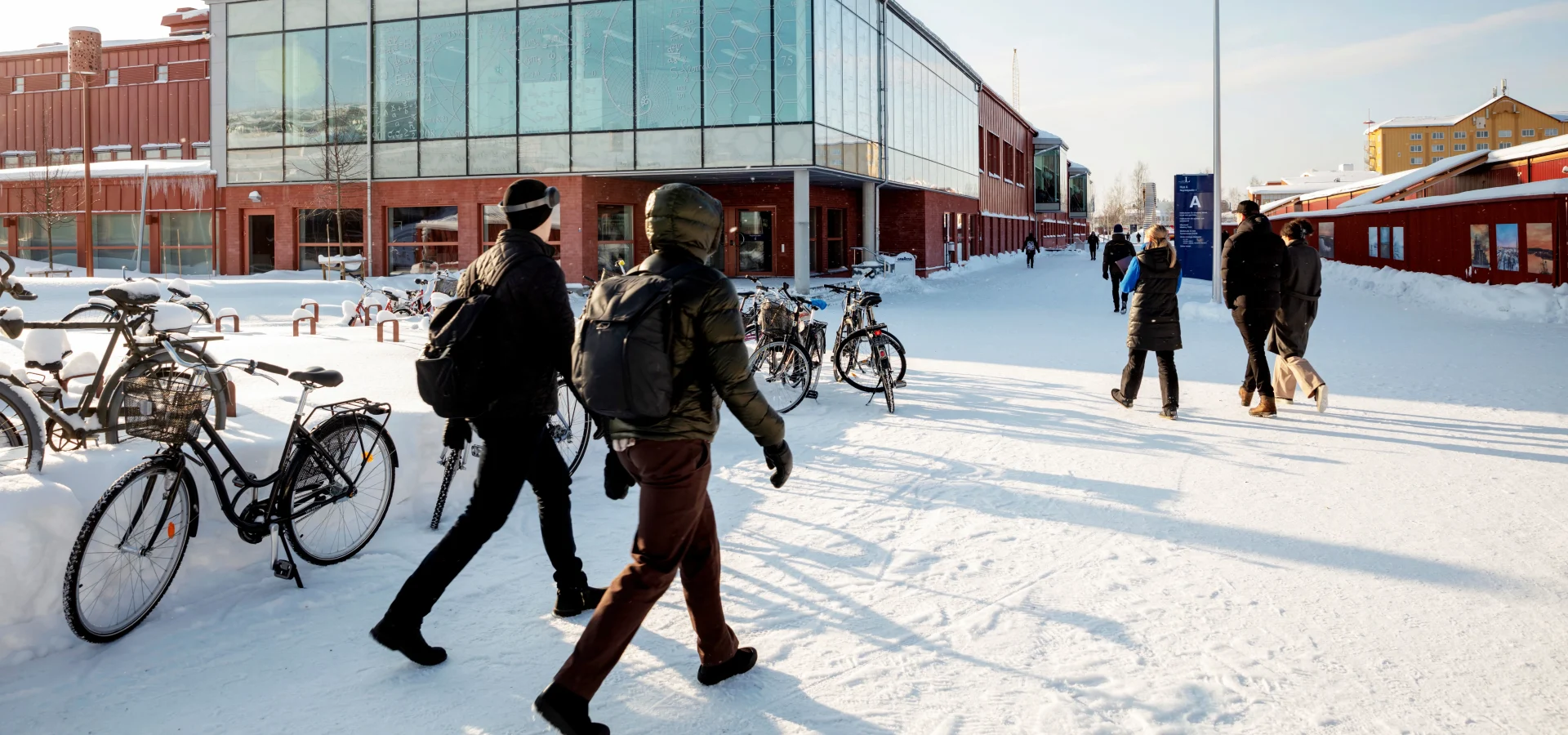
Type of Employment Full-time
Job position PhD student
Work model On location
Application due date 27 November 2025
PhD student in cybersecurity with a focus on 6G and satellite communications
Skellefteå, Sverige
Type of Employment Full-time
Job position PhD student
Work model On location
Application due date 27 November 2025
Are you the one?
Luleå University of Technology is growing rapidly with world-leading expertise in several research areas. We shape the future through innovative education and groundbreaking research results, and based on the Arctic region, we create global social benefits. Our scientific and artistic research and education are conducted in close collaboration with international, national and regional companies, public actors and leading universities. Luleå University of Technology has a total turnover of almost SEK 2.1 billion per year. We are currently 1,900 employees and have 18,700 students.
In the coming years, billions of kronor will be invested in Norrbotten and Västerbotten in major projects aimed at a more sustainable society nationally as well as globally. Luleå University of Technology is involved in several of these highly topical research projects and the social transformation that follows. We have a wide range of programs to match the skills that are in demand. We hope you will help us build the sustainable businesses and societies of the future.
Cybersecurity at the Department of Computer Science, Electrical and Space Engineering, Luleå University of Technology is now looking for a PhD student to contribute to our growing activities.
Luleå University of Technology is in an expansive phase and is implementing an initiative to strengthen research and education in cybersecurity by establishing a new research group in the field. The initiative is directly related to the university's successful ICT environment with several strong research groups that offer good synergy opportunities. We therefore see a focus on research and development of methods to protect different types of systems connected to the internet as important. These systems range from small sensors to large-scale control systems for society's energy supply, and the research ranges from deep research at the methodological level, e.g. algorithm development, to applied research in collaboration with other groups.
Subject description
Cybersecurity focuses on technical security aspects and protection of systems connected to the internet and includes protection of software, data and hardware.
Project description
Luleå University of Technology will start a multidisciplinary competence center in 2025 together with KTH and RISE in 6G and satellite communication. The aim is to integrate traditional land-based mobile communications and space-based satellite communications into 6G, which is expected to be in use in the 2030s. The vision is that mobile communication services will be seamlessly available to anyone with a 6G device, anywhere and anytime.
We are looking for a motivated and innovative PhD student to join our research team to develop cutting-edge solutions that integrate 6G and satellite communications in a secure way. More specifically, the work involves developing independent authentication services for large-scale systems that enable the transition from today's symmetric to future asymmetric crypto solutions. The idea is to create a quantum-safe, efficient and automated PKI (Public Key Infrastructure) for the 6G-NTN of the future, where trade-offs around flexibility, scalability, autonomy and optimization are made with regard to the fact that the systems will execute in space. In addition, work is planned in path-aware networking so that traffic avoids nodes or links that are not secure and the development of new secure communication protocols for 6G-NTN where handover between terrestrial systems and satellite systems takes place safely. Funding of this PhD position is planned within a future project within the European Regional Fund program Upper Norrland.
Work tasks
A PhD position involves both theoretical and practical work. As a PhD student, you will be trained in scientific work in the form of publishing scientific articles in journals and at national and international conferences. You will also take compulsory and optional doctoral courses. In addition, you may have the opportunity to try out the role of teacher. As a researcher, you will work as a neutral party in many contexts, providing a great opportunity to learn how to run challenging development projects.
Qualifications
We are looking for analytical and motivated colleagues who can carry out advanced research both independently and in collaboration with others in our research group. You should have a Master's degree in Computer Engineering or equivalent. In addition, you should have expertise in expert systems, evolutionary algorithms, machine learning methods (semi-supervised learning) and eXplainable AI. In addition, knowledge and practical skills in reasoning about and detecting cybersecurity threats are required. Extensive programming experience in Python, C/C++ and/or other data science tools is also required. Written and oral communication in English is required, as well as a strong team spirit. Previous experience in research and publications is also an advantage.
For further information on specific doctoral programs, please see the curricula for doctoral programs in the Faculty of Engineering
Most of the cybersecurity staff are currently male, so we welcome female applicants.
Further information
Employment as a doctoral student is limited to 4 years, teaching and other departmental duties can be added up to 20% of full time. Place of employment: Skellefteå. Access January 1, 2026 or by agreement. Travel within and outside the country occurs. Security clearance may be required.
For further information, you are welcome to contact:
Professor/Head of Department Kåre Synnes, 0920-49 1507, kare.synnes@ltu.se
Professor and Head of Subject Karl Andersson, 0910-58 5364, karl.andersson@ltu.se
Trade union representative:
SACO-S Diana Chroneer, 0920-49 2037 diana.chroneer@ltu.se
OFR-S Marika Vesterberg, 0920-49 1721 marika.vesterberg@ltu.se
How to apply
We prefer that you apply for the position via the application button below where you attach a cover letter, CV/resume and copies of verified diplomas. Please mark your application with the reference number below. Both the application and the diplomas must be written in Swedish or English.
Deadline for applications: November 27, 2025
Reference number: 4677-2025
